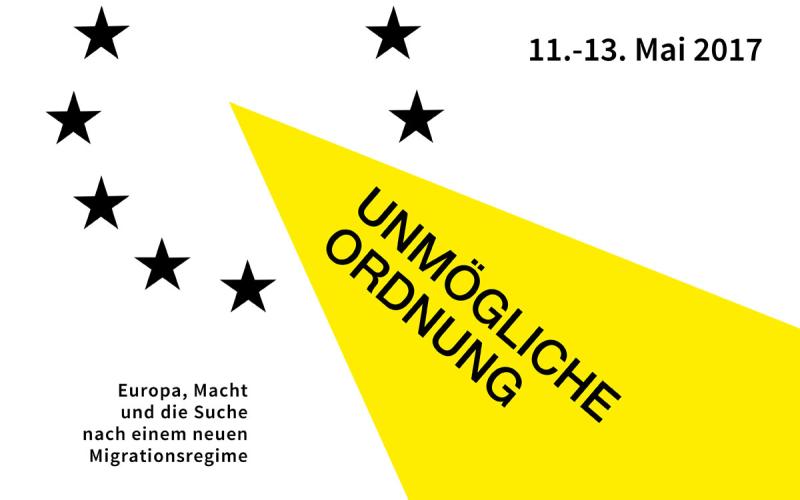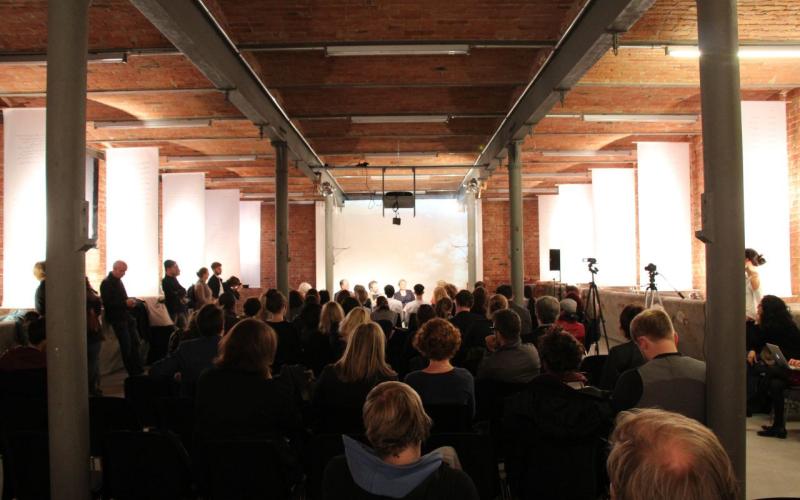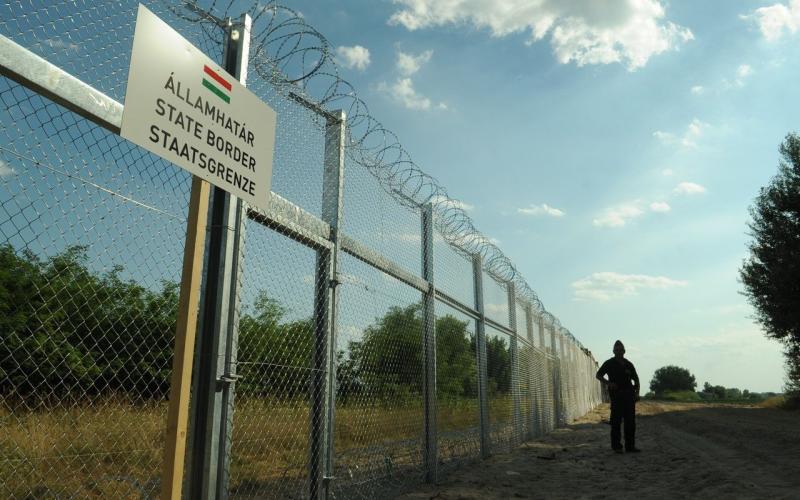Other than briefly presenting types of negotiations and conflict as the panel's title possibly suggests, the panel introduced a deep look inside the difficulties faced during negotiations and various ways of conflicts’ resolution in a migration regime. On the one hand, historian Marcel Berlinghoff and social scientist Claudia Hartmann-Hirsch focused on international and local negotiations respectively. Both studies demonstrated that legal reform and transparent communication on the national and the international level are decisive. On the other hand, Anton Juan and Yiannis Lymtsioulis put attention on migrant’s individual experiences in a conflicted political context, echoing each other on the importance of reconstruction identity through story-telling, particularly one’s narration of traumatic memory. In gathering academics and artists together, the panel presented itself as a fusion of perspectives. It still left the audience questioning on how precisely can academic research and individual artistry merge to improve our understanding of the migration regime.
In his presentation, historian Marcel Berlinghoff (IMIS, Osnabrück University) emphasized the impact of the “Europeanization of the Right to Asylum: Refugee Protection between European Integration and National Sovereignty”. For instance, the definition for a person who can be granted asylum is much clearer due to the commencement of the EU directive 2004/83/EG which defines the minimum standards for the qualification and status of stateless persons as refugees. Migration policy is one of the core elements of European policy (e.g. Schengen Agreement, Dublin Regulations, Maastricht Treaty). Initially, a relatively liberal asylum legislation grounded in a low numbers of refugees coming to Europe in the 1990s. Due to dismantling internal border controls not only goods should circulate but also persons should be enabled to “experience” Europe in an easier way. Furthermore, the horrible pictures of the Yugoslav Wars – broadcasted across whole Europe in the 1990s – first lent weight to a humanitarian asylum legislation but then, in the light of increasing numbers of refugees, led to a turn-around and initiated a long process of installing restrictions. In the light of the ongoing humanitarian crisis, Berlinghoff sees needs of reform concerning the balanced allocation of refugees across Europe and the access through Europe's external frontiers. In recent years, national resistances against EU asylum legislation challenges its resilience. The outcome of the Dublin IV negotiations will reveal whether nationalist or European interests prevail. Berlinghoff highlighted the positive aspects of the legal development with a critical perspective on the recent national clamor.
Against this broad and international perspective, Claudia Hartmann-Hirsch in her talk on “Limits and Gradations of the Intra-European Freedom of Movement: Portuguese ‚Crisis-Refugees‘ in Luxembourg“ introduced a national perspective. This presentation was based on recently finished research on Portuguese immigrants in Luxembourg. The conflict she observed is a complex one among migrants, government and NGOs. Since 1990, the increased number of Portuguese immigrants in Luxembourg has led to the rising demand of social welfare and become a burden for the government. In Hartmann-Hirsch's words, this trend of internal immigrants within the EU exposes the limitation of integration policies, particularly policies that encourage free entries and labor flow. The divisions of Northern and Southern Europe, in terms of the social welfare system intensified the European financial imbalance, either facing the problem of unemployment or possible welfare shortage. Unfortunately, Luxembourg’s government and most NGOs were unable to answer to the sudden rise of immigrants. The government’s solution to the problem through changing requirements of citizenship also lacks of transparency. Hartmann-Hirsch stated that the condition is a dilemma for both immigrants and local government. At least the first step to resolve it would have to be an improvement of government-immigrant communication.
Anton Juan, a professor and theater director, unfortunately was unable to personally attend this section of the conference. In his paper, presented by his Notre Dame colleague Maurizio Albahari, Juan introduced a theater project he recently conducted in London – “Children of the Migrant Moon” – a space for and by children. It stands as a chance for immigrant children to re-identify themselves through storytelling. In Juan's view, memory is motivated to become the origin of one’s will and further action. Juan realized the importance of time in one’s identification, he invites some immigrant children to act out their memories, their present self, and the projection to the future. Fascinatingly, the play itself does have in-depth psychological consideration, in terms of how creative acting becomes an instrument for children to channel their memories instead of eliminating them. From some examples of children’s proses he shared with us, Juan described that through such creative experiences they hope to insert new meaning to the fragmented self-identification of the children and allow them to reconstruct one’s self.
Following this, novelist and playwright Yiannis Lymtsioulis added his view to Juan's initial part of the joint paper on “Beyond ‘Us’ and ‘Them’: The Process of Creating One's Meaning”. He focused on the concerns of refugees from a very personal point of view. In his description, he started with the desolate situation of Greece in the aftermath of World War II. Many people fled Greece to Australia, USA and other countries seeking for a more hopeful future. After World War II until nowadays many refugees came to Greece. The difference to the Greeks is that the contemporary refugees are not just looking for a better life, they are looking for a life in Greece and Europe. Their countries are destroyed through politics, violence or war and lack the possibility for any kind of reasonable life. For Lymtsioulis, the drownings of many refugees in the Mediterranean Sea are more than a drama. As a writer, he wants to trace the quotidian tragic stories of fugitive fates. Methodologically, he underlined his radical perspective that life is a real tragedy and can only be understand comprehensively by this particular view. Lymtsioulis, without questioning the relevance of academic methods, introduced a challenging emotional approach and clarified the necessity of a personal access to the topic.
The contributions to panel III illustrated the various conflicts and opportunities emerging from migration (of refugees). As Berlinghoff showed, some conflicts were anticipated by European politicians and guided them through their negotiations on Asylum legislation, others came as a surprise or resulted from simplified visions of the effects of a restrictive Asylum policy. Hartmann- Hirsch opened the perception of migrant issues to the inner-European perspective. She followed the conflicts arisen between the Portuguese and the hosting society in Luxembourg. Juan demonstrated the inner conflicts of fugitive children struggling with their memories and in the end, Lymtsioulis called upon everybody to see the personal fates of the refugees beyond potential conflicts.
Zitation
Alex Konrad, Negotiations and Conflict. Panel III , in: Zeitgeschichte-online, , URL: https://zeitgeschichte-online.de/themen/negotiations-and-conflict



